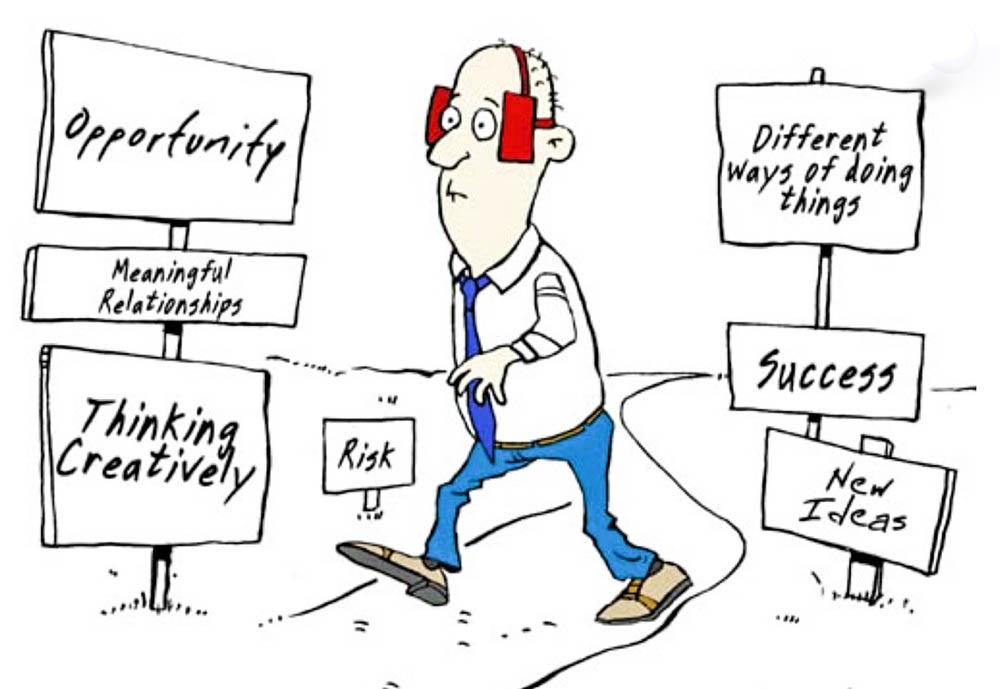
I'm worried that eLearning is too prescriptive. This will depend of course at what level a student is being taught. Primary is different from Tertiary. At primary there is stuff you need to know, at tertiary you can be expected to explore around the subject. However, believing that a student can pick up everything in the most suitable way simply from what is put before them is surel a mistake.
The online learning I have experienced is rather of this type. You are blinkered to anything other than the content presented to you. This might work for some people, or even most people, unfortunately for me, I know this approach does not stimulate me at all.
I am trying to become a certified Google Educator Level 1. This is fairly basic communications stuff, though with some parts of the Google Suite I never touch. The 'learning' is repetitively of the same type and format: read a bit, watch or listen to a few examples, typically a teacher reading a portaprompt off camera (always from the US) in tones that lean towards sales pitch rather than candid revelation. My Teflon brain smells a rat and won't buy it. There are interludes to complete a multiple choice quiz. When you have done this for 12 hours and studies as many units you sit down to a formal 3 hour online test. I don't respond well to having been expected to wear blinkers all the way through the training, and remain blinkered during the test There is no room for manoeuvre: there is their way or the wrong way.
How many MOOCS are of a similar ilk? The learning is a kind of conveyor belt where through reading, answering questions and watching videos you are supposed to become conversant and more importantly a competent practitioner.
I need to be set tasks, I need to fail at these tasks and been corrected, I need to be recognised and rewarded when I get something right. Over time, a lot of time, what I am doing, why I am doing it and how I do it makes sense. This is what I call practical learning. I do best when such learning is on the job. I do best when two years in I am faced with an exam. The narrative of my learning follows the Hollywood Arch which builds towards a climax. I cannot abide coursework because my first efforts are invariably terrible. Here at the OU I was known to get grade in the 40s or 50s. It took a couple of years to reach the stratospheric heights of grades in the 80s (and one 92).
Take the blinkers off. Don't put your students in blinkers, Expect them to venture far and wide. Encourage them to look around, and therefore click around the many resources they can find and be informed by.
Comments
New comment
Hi Jonathon
I certainly agree about the blinkers. Although I am only a level 1 student trying for Q77 Maths and Physics I find independent research far more interesting than course work. An example was when doing Topic 4 of S111 in a video a tutor mentioned that extremophiles, specifically tardigrades, could live in space, with no further information and a recollection of seeing something on the BBC News many years ago I went in search of the when, where and how. I discovered it was on the last ever space shuttle, Endeavour, flight from and article by Emma Brennard, 17th May 2011, BBC Nature and from there I deduced that the flight must have been the day before because her article was last updated in the early hours of the the morning so I looked on the NASA website which did not give me any further information about Tardigrades but, only about the payload,experiments on board and flight information but it did lead me to a link, https://apod.nasa.gov/apod/ap130306.html, which gave me more information. The nugget that most interested me as a former Leukaemia patient, (2003 Acute Lymphoblastic Leukaemia T-cell) for which I had Total Body Irradiation, was the fact that Tardigrade's can repair their own DNA which obviously is damaged by radiation found in space. I have not yet had time to look in the O.U. library and trawl through journals to find any research in this area, or even to look online because of study and life getting in the way but I think it would be a great step forward for medical science to be able to harness this ability for humans especially as we are destroying our planet and will need to travel into space in order to survive and find a new world, hopefully not making the same mistakes we have with this one. Sorry, I did not mean to ramble on about science but I wanted to give your readers an idea where the un-blinkered approach leads.
New comment
It must come down to personal preference, even distractations or depth and scope of curiosity. I find there are enviable students who stick to the plan given to them, focus on that and do well. I cannot help but go ‘off piste’ wanting to support what I am being told with other perspectives, approaches and voices. This doesn’t not lend itself well to tight elearning platforms, certainly not computer marked tests and multiple choice. Like this blog, I like to indulge my thoughts and enthusiasms,